![]() Ode to the West Wind
Ode to the West Wind
"Ode to the West Wind" is an ode, written by Percy Bysshe Shelley in 1819 near Florence, Italy. Some have interpreted the poem as the speaker lamenting his inability to directly help those in England owing to his being in Italy. At the same time, the poem expresses the hope that its words will inspire and influence those who read or hear it. Perhaps more than anything else, Shelley wanted his message of reform and revolution spread, and the wind becomes the trope for spreading the word of change through the poet-prophet figure. Some also believe that the poem is due to the loss of his son, William (born to Mary Shelley) in 1819. His son Charles (to Harriet Shelley) died in 1826, after "Ode to the West Wind" was written and published. The ensuing pain influenced Shelley. The poem allegorises the role of the poet as the voice of change and revolution.
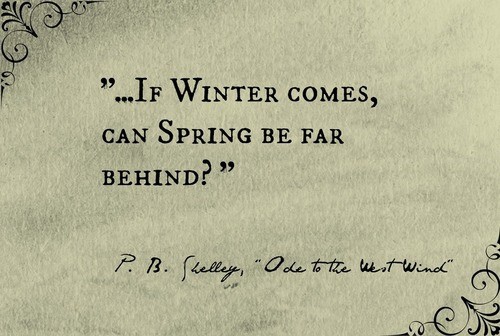
![]() A Doll's House
A Doll's House
A Doll's House (Bokmål: Et dukkehjem; also translated as A Doll House) is a three-act play in prose by Henrik Ibsen.
The play is significant for its critical attitude toward 19th-century marriage norms. It aroused great controversy at the time, as it concludes with the protagonist, Nora, leaving her husband and children because she wants to discover herself. Ibsen was inspired by the belief that "a woman cannot be herself in modern society," since it is "an exclusively male society, with laws made by men and with prosecutors and judges who assess feminine conduct from a masculine standpoint."
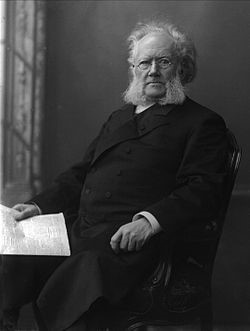
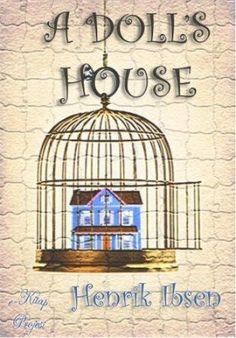
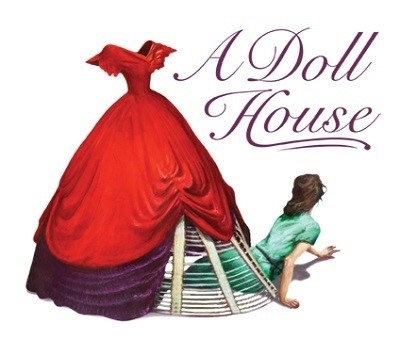
![]() Sonnet 18
Sonnet 18
Sonnet 18, often alternatively titled Shall I compare thee to a summer's day?, is one of the best-known of 154 sonnets written by the English playwright and poet William Shakespeare.
In the sonnet, the speaker compares his beloved to the summer season, and argues that his beloved is better. He also states that his beloved will live on forever through the words of the poem.
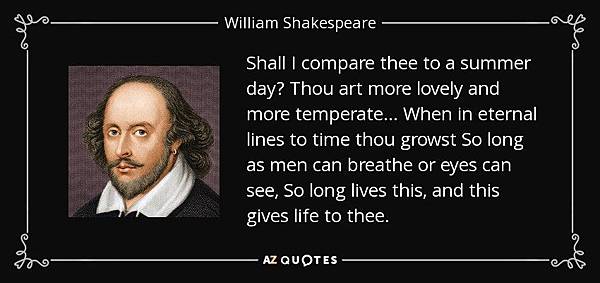
![]() I Wandered Lonely as a Cloud
I Wandered Lonely as a Cloud
"I Wandered Lonely as a Cloud" (also commonly known as "Daffodils") is a lyric poem by William Wordsworth. It is Wordsworth's most famous work.
The poem is commonly seen as a classic of English romantic poetry.
I wandered lonely as a cloud
That floats on high o'er vales and hills,
When all at once I saw a crowd,
A host of golden daffodils;
Beside the lake, beneath the trees,
Fluttering and dancing in the breeze.
Continuous as the stars
that shine and twinkle on the Milky Way,
They stretched in never-ending line
along the margin of a bay:
Ten thousand saw I at a glance,
tossing their heads in sprightly dance.
The waves beside them danced; but they
Out-did the sparkling waves in glee:
A poet could not but be gay,
in such a jocund company:
I gazed - and gazed - but little thought
what wealth the show to me had brought:
For oft, when on my couch I lie
In vacant or in pensive mood,
They flash upon that inward eye
Which is the bliss of solitude;
And then my heart with pleasure fills,
And dances with the daffodils.
![]() William Wordsworth
William Wordsworth
William Wordsworth (7 April 1770 – 23 April 1850) was a major English Romantic poet who, with Samuel Taylor Coleridge, helped to launch the Romantic Age in English literature with their joint publication Lyrical Ballads (1798).
Wordsworth's magnum opus is generally considered to be The Prelude, a semiautobiographical poem of his early years that he revised and expanded a number of times. It was posthumously titled and published, before which it was generally known as "the poem to Coleridge".
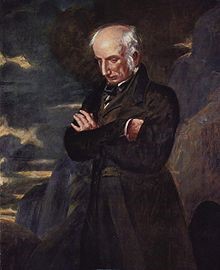
![]() Portrait of William Wordsworth by Benjamin Robert Haydon
Portrait of William Wordsworth by Benjamin Robert Haydon
![]() Bartleby, the Scrivener
Bartleby, the Scrivener
Bartleby, the Scrivener: A Story of Wall Street is a short story by the American writer Herman Melville. A Wall Street lawyer hires a new clerk who—after an initial bout of hard work—refuses to make copy and any other task required of him, with the words "I would prefer not to". The lawyer cannot bring himself to remove Bartleby from his premises, and decides instead to move his office, but the new proprietor removes Bartleby to prison, where he perishes.
Numerous essays have been published on what, according to scholar Robert Milder, "is unquestionably the masterpiece of the short fiction" in the Melville canon.
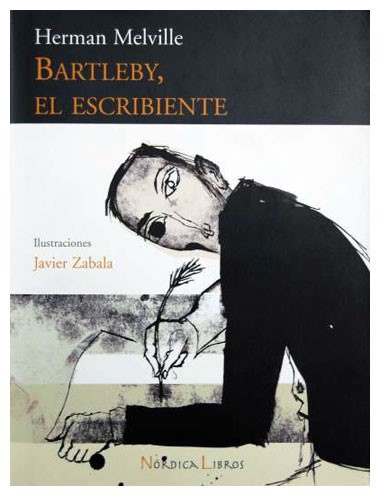
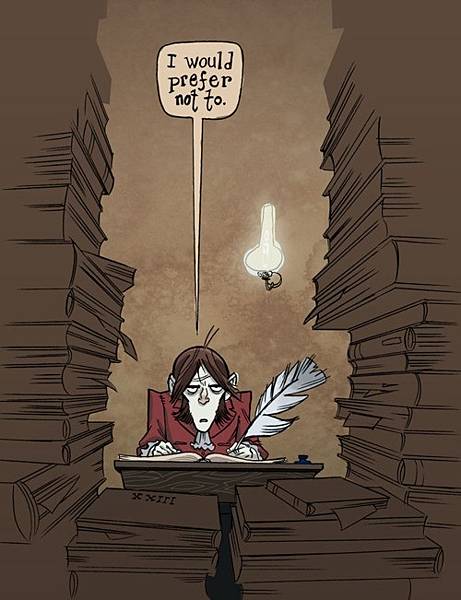
![]() The story closes with the narrator's resigned and pained sigh, "Ah Bartleby! Ah humanity!, which is also a comment on the absurdity of humanity. The narrator’s final statement is a lament to Bartleby’s absurd life.
The story closes with the narrator's resigned and pained sigh, "Ah Bartleby! Ah humanity!, which is also a comment on the absurdity of humanity. The narrator’s final statement is a lament to Bartleby’s absurd life.
![]() Herman Melville
Herman Melville
Herman Melville[a] (August 1, 1819 – September 28, 1891) was an American novelist, short story writer, and poet of the American Renaissance period best known for Typee (1846), a romantic account of his experiences in Polynesian life, and his whaling novel Moby-Dick (1851). His work was almost forgotten during his last thirty years. His writing draws on his experience at sea as a common sailor, exploration of literature and philosophy, and engagement in the contradictions of American society in a period of rapid change.
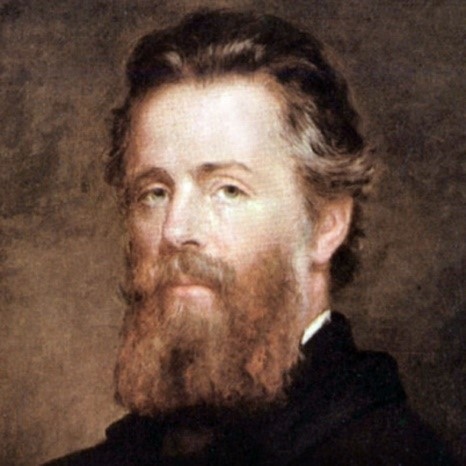
![]() Moby-Dick
Moby-Dick
Moby-Dick; or, The Whale is a novel by American writer Herman Melville, published in 1851 during the period of the American Renaissance. Sailor Ishmael tells the story of the obsessive quest of Ahab, captain of the whaler Pequod, for revenge on Moby Dick, the white whale which on an earlier voyage destroyed his ship and severed his leg at the knee.
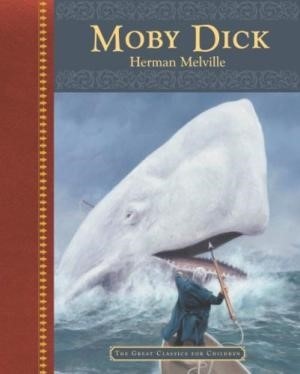
![]() "______, thy name is ______" is a snowclone used to indicate the completeness with which something or somebody (indicated by the second part) embodies a particular quality (indicated by the first part), usually a negative one.
"______, thy name is ______" is a snowclone used to indicate the completeness with which something or somebody (indicated by the second part) embodies a particular quality (indicated by the first part), usually a negative one.
In the Shakespearean play Hamlet (I, ii, 146)., the title character is chastised by his uncle (and new stepfather), Claudius, for grieving his father so much, calling it unmanly. In his resultant soliloquy, Hamlet denounces his mother's swift remarriage with the statement, "Frailty, thy name is woman." He thus describes all of womankind as frail and weak in character. The phrase is recognized as one of the "memorable expressions" from the play to become "proverbial".
![]() Free verse (自由韻體詩)
Free verse (自由韻體詩)
Free verse is an open form of poetry. It does not use consistent meter patterns, rhyme, or any other musical pattern. It thus tends to follow the rhythm of natural speech.
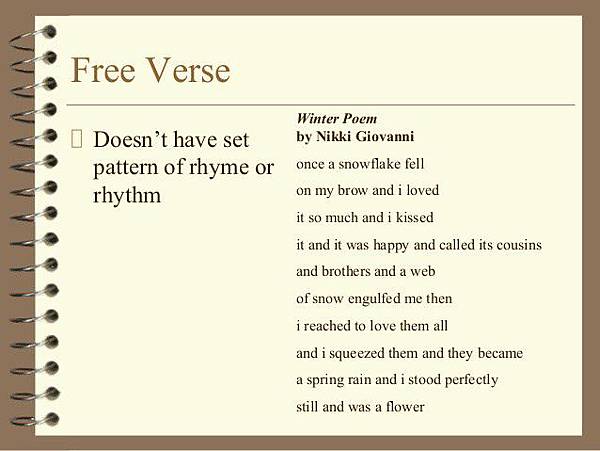
![]() Cultural depictions of ravens
Cultural depictions of ravens
There are many references to ravens in legends and literature. Most of these refer to the widespread common raven. Because of its black plumage, croaking call, and diet of carrion, the raven has long been considered a bird of ill omen and of interest to creators of myths and legends.
As a carrion bird, ravens became associated with the dead and with lost souls.
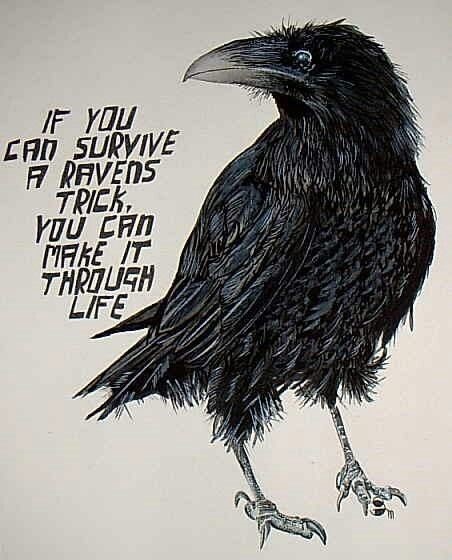
![]() Doves as symbols
Doves as symbols
Doves, usually white in color, are used in a variety of settings as symbols of love, peace or as messengers. Doves appear in the symbolism of Judaism, Christianity and Paganism, and of both military and pacifist groups.
According to the biblical story (Genesis 8:11), a dove was released by Noah after the flood in order to find land; it came back carrying a freshly plucked olive leaf (Hebrew: עלה זית alay zayit),[Gen 8:11] a sign of life after the Flood and of God's bringing Noah, his family and the animals to land.

![]() new words:
new words:
poetic license (noun):
changes by a writer to facts or rules of good writing to make the work more interesting or effective
prescription (noun) 藥物, 處方: a piece of paper on which a doctor writes the details of the medicine or drugs that someone needs.

![]() prefix & suffix:
prefix & suffix:
fra- : break, crush
eg. fragile (adjective): easily damaged, broken, or harmed
eg. fragment (noun): a small piece or a part, especially when broken from something whole.

nom : name
eg. nominal (adjective): in name or thought but not in fact or not as things really are.
eg. nomenclature (noun):(尤指某一科學領域的)命名法: a system for naming things, especially in a particular area of science.
eg. misnomer (noun): a name that does not suit what it refers to, or the use of such a name.
dic- : to say
eg. diction (noun): the manner in which words are pronounced.
eg. dictator (noun): a leader who has complete power in a country and has not been elected by the people
eg. predict (verb): to say that an event or action will happen in the future, especially as a result of knowledge or experience
